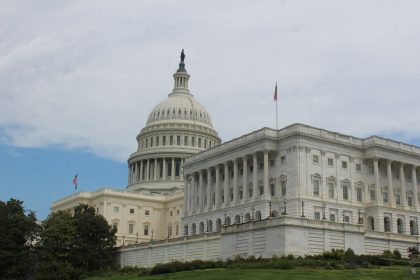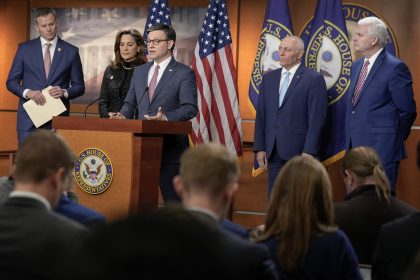Midterm Elections Give Momentum to Marijuana Reform Laws

WASHINGTON — A congressional panel reviewed options Tuesday for reforming marijuana laws as the midterm elections last week showed a continuing trend among states to decriminalize the drug.
Voters in two states — Maryland and Missouri — approved legalization of adult recreational use of marijuana. Voters in several cities ended marijuana-related arrests and prosecutions.
Twenty-one states and the District of Columbia have now legalized use or sales of small amounts of marijuana.
The question confronted by the House Oversight and Reform subcommittee was whether the federal government is behind the times.
“Congress needs to catch up,” said Rep. Jamie Raskin, D-Md., chairman of the House Oversight and Reform subcommittee on civil rights and civil liberties.
Even within the federal government, confusion and mixed messages abound.
Last month, President Joe Biden pardoned anyone convicted under federal law of possessing marijuana. About 6,500 convicts are eligible for the pardons.
The White House announcement said the convictions unfairly deny thousands of Americans access to public services, employment and academic opportunities.
Regardless of Biden’s opinion, possession or sales of marijuana remain classified under the federal Controlled Substances Act of 1971 as a Schedule 1 felony.
“They account for 43% of all drug arrests,” Raskin said.
Schedule 1 is the highest category of drug crime in a league with illegal sales of heroin. It can result in 15 years in prison.
Only Congress can change the law.
Raskin compared laws that ban marijuana use to the prohibition on alcohol from 1919 through 1932. Prohibition led to organized crime and widespread violations of the law.
“The cost and the harms of criminalizing alcohol were far worse than letting people make decisions about their own lives,” he said.
A leading marijuana reform bill is the States Reform Act introduced by Rep. Nancy Mace, R-S.C. It extends the same kind of regulations used for alcoholic beverages to marijuana and other cannabis products.
In other words, the Food and Drug Administration could ensure they are produced safely but could not forbid use or distribution of them. Cannabis could be grown by farmers like any other cash crop.
Anyone convicted of possession of marijuana would be granted clemency under the bill.
“The only place it is controversial is here in the halls of the capital,” Mace said. “This is a multibillion-dollar industry. It is not going back into the genie’s bottle.”
An added benefit would be shutting out violent drug cartels that produce and distribute marijuana on the black market, she said.
Among skeptics of legalization was Rep. Pete Sessions, R-Texas, who predicted that cannabis businesses would use pharmaceutical techniques to make the drug more potent to ensure customers keep coming back to buy more.
“The bottom line is that it is addictive,” Sessions said.
He also said it is associated with increases in traffic fatalities.
Advocacy organization witnesses at the congressional hearing largely agreed that the time is right for legalization.
Jillian Snider, a former police officer and now a policy director for the nonprofit R Street Institute public policy foundation, estimated that 55 million Americans use marijuana on occasion.
The differing laws they face “results in extremely varied forms of policing,” Snider said.
After the hearing, she told The Well News, “At this time, over 90% of the American population supports the legalization of cannabis for either medicinal or recreational use. Currently, more individuals consume cannabis than tobacco products.”
Paul Armentano, deputy director of the National Organization for the Reform of Marijuana Laws, said many marijuana users risk arrest despite the fact they are trying to use the drug for pain management or to control anxiety associated with post-traumatic stress disorder.
If it is legalized, “More importantly, these millions of Americans will no longer need to live in fear of criminal prosecution,” he said.
Tom can be reached at [email protected] and @TomRamstack























